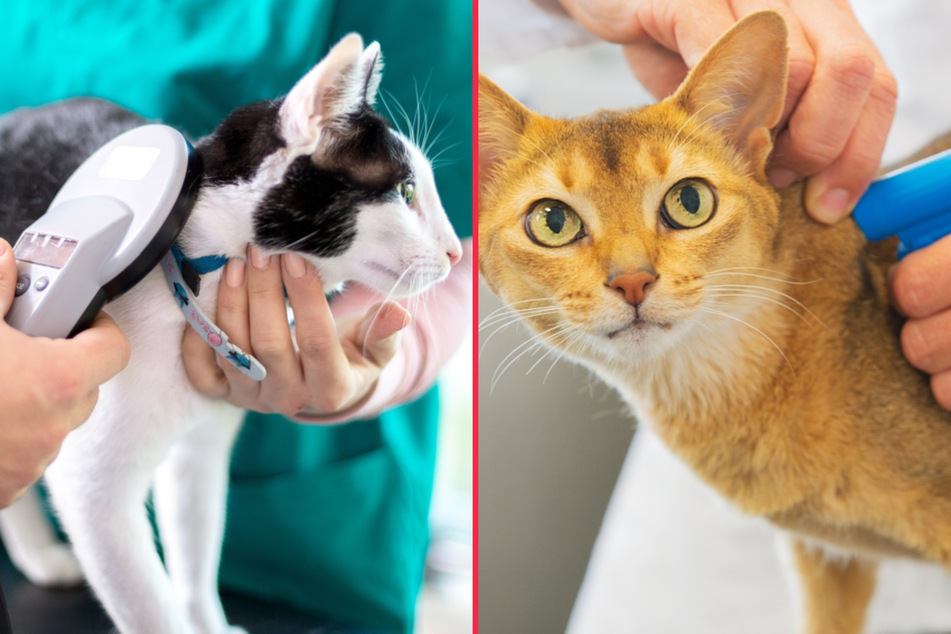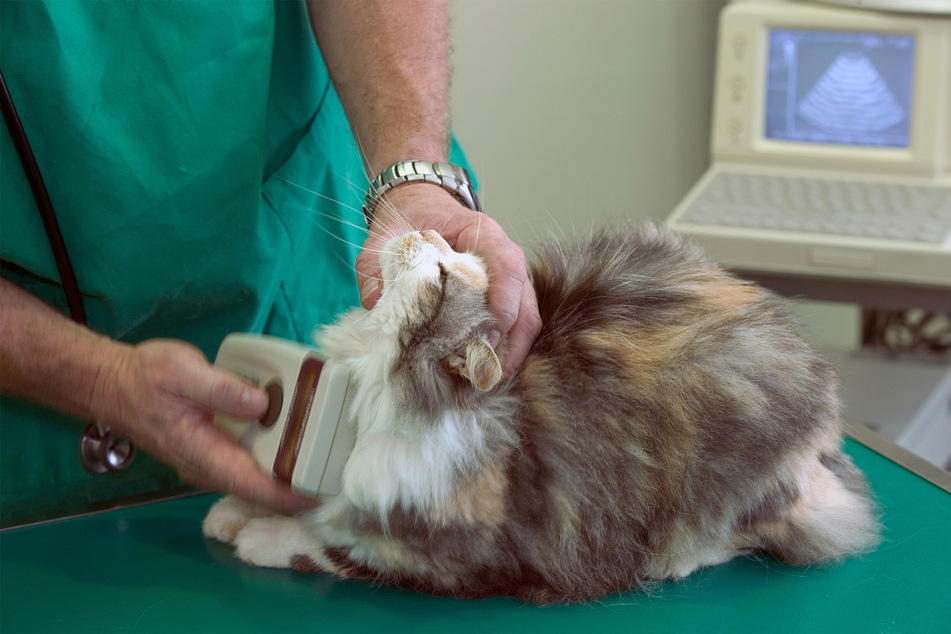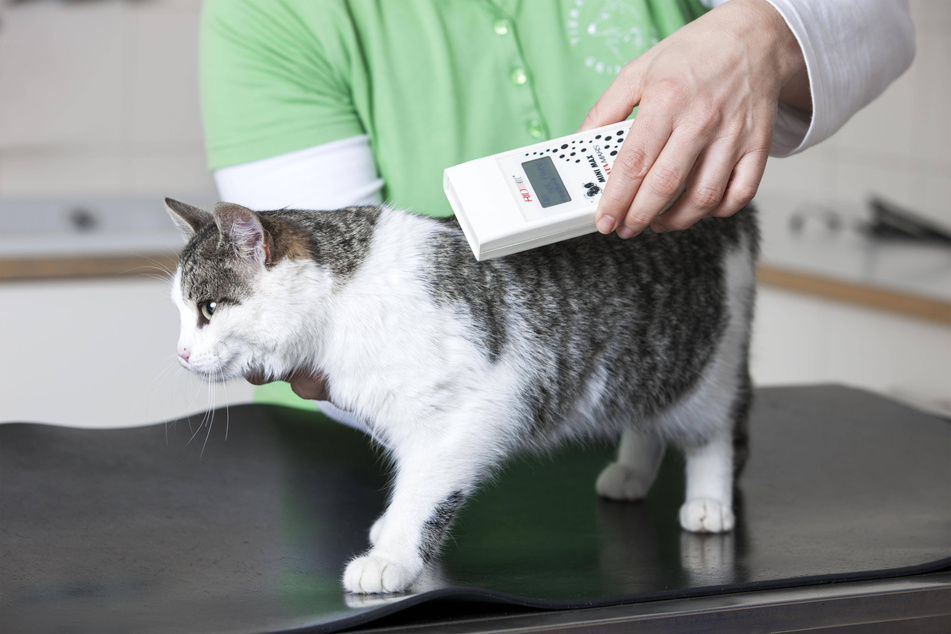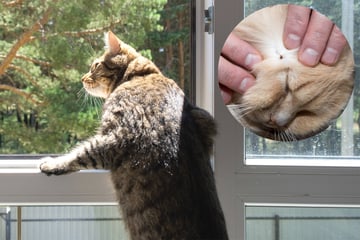Cat microchips: Why to get your cat microchipped, and how much does it cost?
It can be incredibly frightening when your cat runs away and disappears, especially if it isn't wearing a collar. For many, getting your cat microchipped is the answer to this problem. Here's what you need to know.

Microchipping your cat is a fantastic layer of security and protection, especially if you can't keep your kitty in a collar. Some people find it a little frightening, though, and are unsure about whether it's really necessary to get their cat microchipped. Does it cause health issues? Is it safe?
In this cat guide, TAG24 will take you through why you should get your cat microchipped. What is a cat microchip, why are they important, what should you consider, and how much will it cost? Let's take a look.
What is a cat microchip?
A microchip is a small device that is implanted into the skin of your cat that can be scanned by vets or animal shelter workers as a form of identification. Often referred to as a "transponder identification," these small chips are around half an inch across and can only be activated and used by professionals.
They are meant as a backup form of identification if a cat loses its collar and goes missing. The idea is that if the cat ends up in the pound or in the hands of a vet, the chip can be scanned, the cat identified, and its owners contacted. It's a safety feature that is compulsory in many states and many countries, and can be implemented by most veterinarians.
It's important that if you own a cat, that kitty has been registered properly, microchipped, and fixed. This all needs to be done generally before the cat is fully grown, in the first few months of its life.
Why should you get your cat microchipped?
There are a variety of benefits and disadvantages to microchipping, but overall it is considered a perfectly safe and incredibly useful service that will keep your cat safe. The main reason, of course, is to provide an easy method of identification if your cat runs away. Not all kitties like to wear collars, after all, so it's a good idea.
As always, there are those who speak out against microchips in cats. They generally speak out from a place of ignorance, with disadvantages that don't generally make a lot of sense. It is always best to weigh both sides in an argument, though, as there are pros and cons to everything.
Let's take a look at the benefits and disadvantages of cats getting microchipped. What makes it so important, and why are some people so against it?

Benefits of microchips in cats
Here are the biggest advantages that come from microchipping your cat:
- Location: If your cat runs away and gets picked up by a stranger, the chip can be used to identify it and relay its location to you. Fancier microchips can also act as a GPS, but that is exceedingly rare.
- Information: Your cat's microchip is linked to its identity number, which can then be used by your vet or other pet agencies to pull up its health record, home, and family information.
- Availability: The information on the chip is always available and cannot be lost, unlike phone numbers stored on collars which can fall off sometimes.
- Reliability: The chip contains a 15-digit number that exactly matches your cat, and can only be assigned to you. As a result, it is very unlikely that a mistake will be made.
- Painless: Chipping is more-or-less painless. It is done with a small puncture that will insert the chip just underneath the skin. This isn't very painful and doesn't require anesthesia, which can be dangerous for cats.
- Durable: The microchip will last your cat's entire lifetime and will not need to be renewed.
It's a pretty simple technology: A small chip that will reveal your cat's identity number when scanned. This number is then linked to you, as well as the cat's various records. It's also harmless. What's not to love?
Fun fact: There are even cat flaps and food bowls that'll only open when it recognizes your cat's microchip. Isn't that just insanely cool?
Disadvantages of microchips in cats
Here are a few reasons why people don't like microchips in cats
- Ignorance: Some people don't understand how transponder identification works and worry about the safety of their kitty. This is fair enough, every responsible cat owner should worry about their feline friend, but unnecessary as microchips are completely safe.
- Chips getting dislodged: Others worry that the chip could somehow wander through their cat's body, causing internal damage. This is not possible as the chip is embedded into your cat's skin, which then grows over it, holding it in place.
- Radiation: Microchips do not expose your cat to any radiation what-so-ever, and as a result will not cause things like cancer, nor any other health problems.
- RFID waves: Radio-frequency identification does work via electromagnetic waves, but they are only activated briefly when the chip is scanned. This has no negative health impact.
Important: Remember that you are not a vet, and the internet does not hold the answers you seek. When it comes to anything medical, it's always okay to proceed with an abundance of caution. As such, speak with your vet, voice your concerns, and abide by professional medical advice.
How much does it cost to microchip a cat?

It will generally only cost you between $50-$100 to get your cat microchipped at the vet. This price will vary, of course, depending on where you live, your vet, and your insurance. Ultimately, it's a cheap and painless process that increases the safety of your cat and gives you peace of mind.
While inexpensive, you will likely need to book an appointment at your vet specifically for this procedure. They will need to order the chip and have everything set up digitally for your kitty. There will be paperwork, but this is a small investment to make for a more secure and happy future.
Microchipped cats are safer
Microchipping your cat is not only something that is compulsory in some states and, indeed, in many countries around the world, but also something that is just a generally good idea. This minor and pretty painless procedure will guarantee that your kitty can be identified if it gets lost, giving authorities a way to get in touch with you if your cat gets into trouble.
If your cat has been microchipped, it will be safer and more secure when wandering around outdoors. Many cats hate collars, and will wiggle their way out, leaving them with no form of identification. Having such a cat microchipped gives it an extra layer of security, making it less likely that your kitty will get lost.
It's incredibly important to get your cat microchipped. They'll be safer, more secure, and easily identifiable even without a collar. You also don't need to worry – it's harmless, easy, and inexpensive as well!
Cover photo: Collage: 123RF/Luckybusiness/Ivonnewierink



